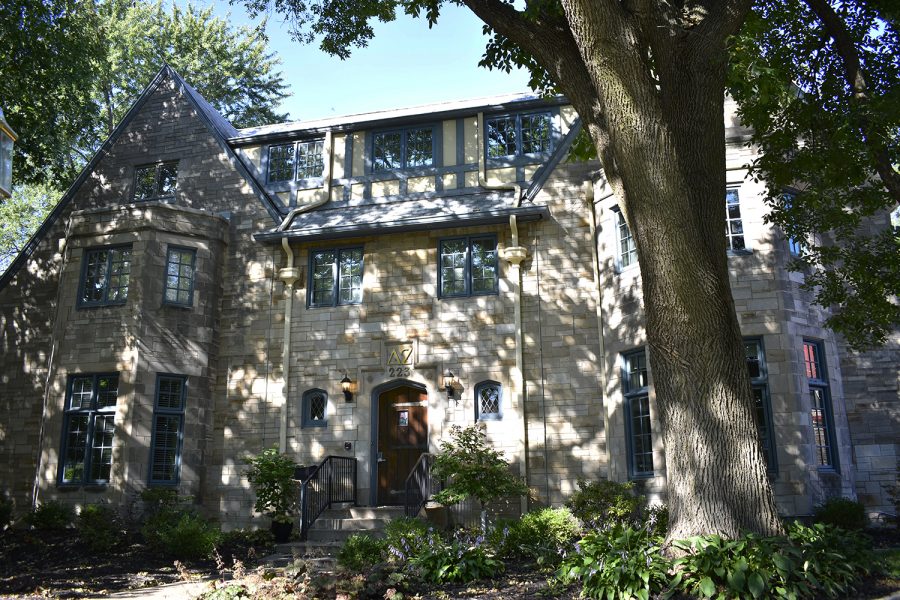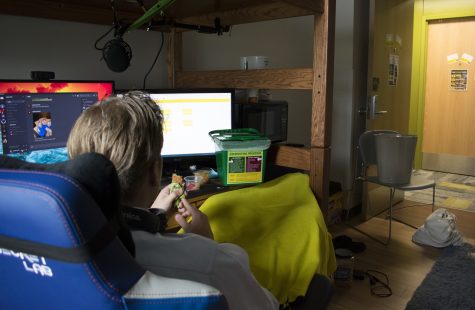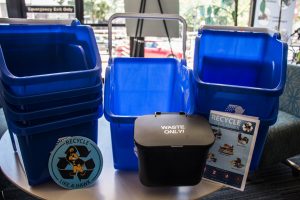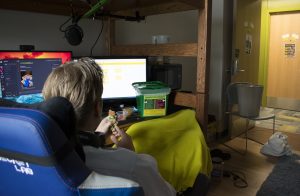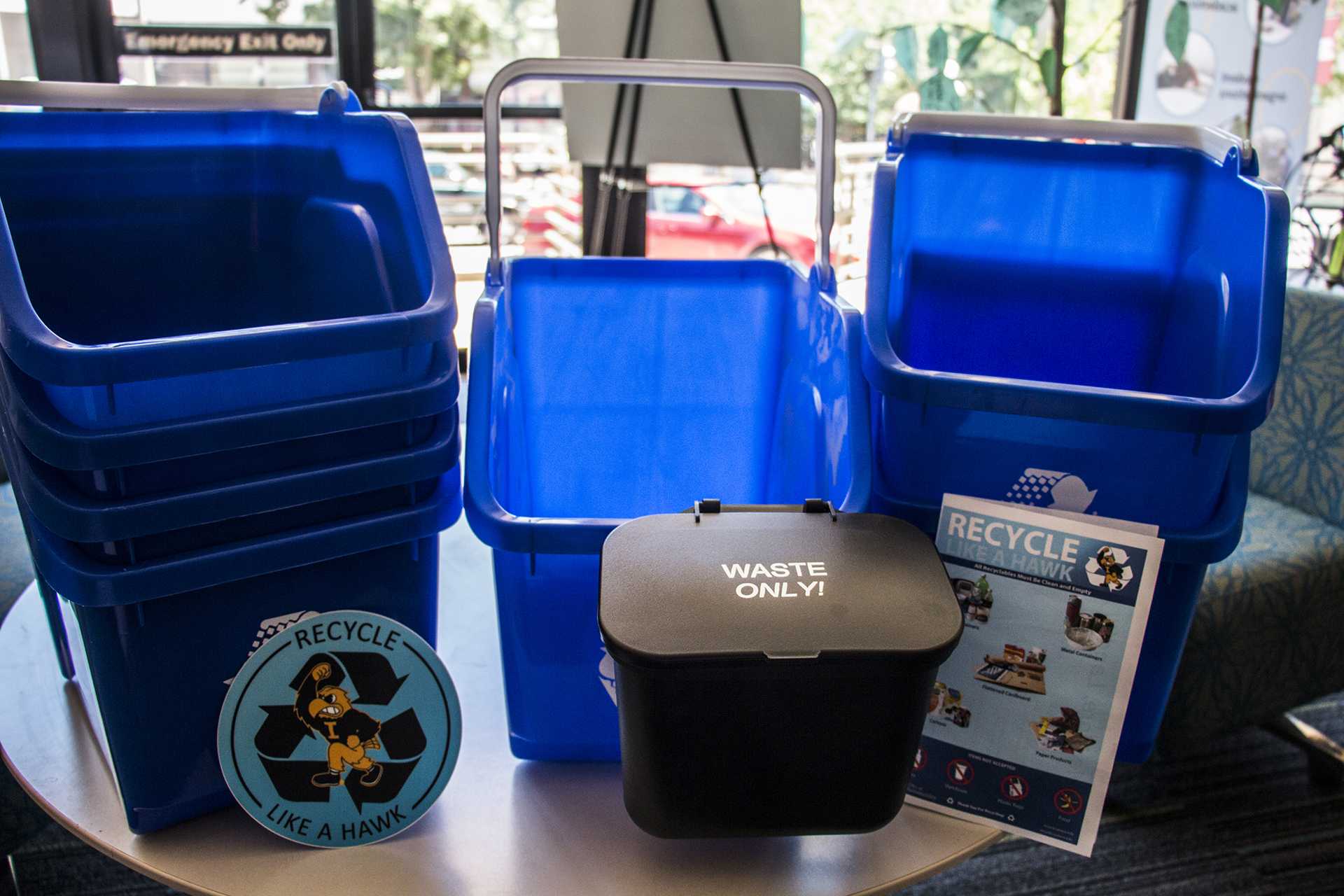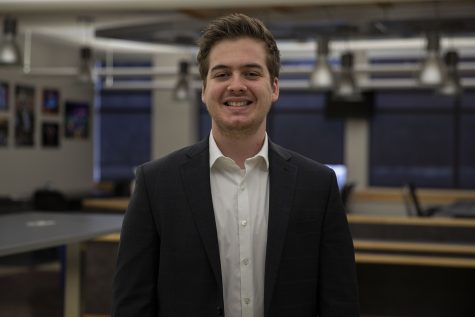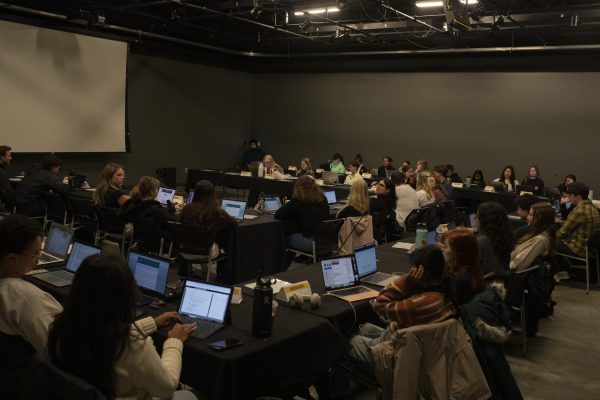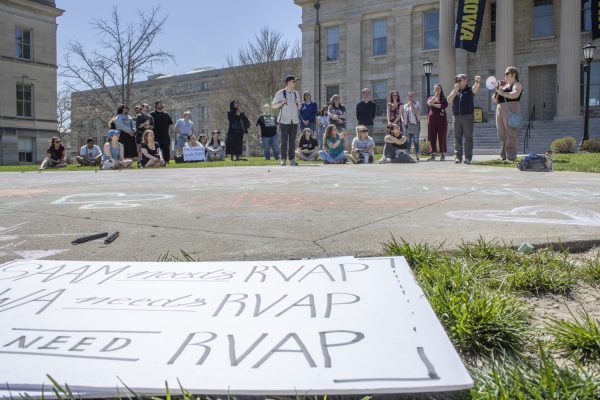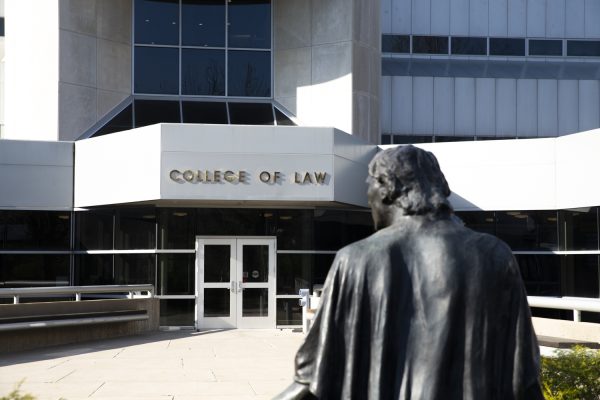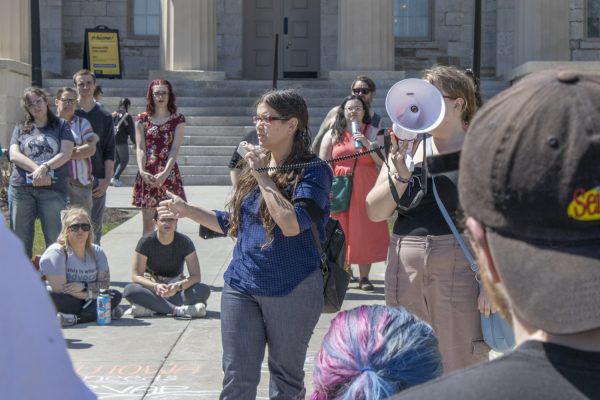UI greek life pushes for sustainability
Members of various fraternities and sororities have taken action to address waste and push for sustainability in their chapters and the community as a whole.
The Delta Zeta Sorority house is seen on South Dodge Street on Wednesday, Sept. 12, 2018.
September 13, 2018
Fraternities and sororities across the University of Iowa campus are making an effort to reduce waste and be more sustainable.
UI junior Noel Mills of Delta Zeta has been at the forefront of these efforts, beginning by implementing recycling in her chapter’s house in the spring of 2017.
When she lived in the Delta Zeta house in 2016, she saw how much waste the sorority produced. It was an unavoidable part of sorority life, she said, but she believed that there was a better way to do it things.
“I wanted to channel my passion for sustainability into something,” Mills said.
There was recycling in the kitchen in her house, but there was no place for the sorority members to recycle personal items, she said.
As a member of UISG, Mills was aware of the Green Initiative Fund, which the organization has set up to aid student groups in sustainability efforts. Using the fund, Mills was able to purchase small recycling bins and place them around the sorority house.
In addition to recycling, Mills was able to begin composting in her chapter house as well. As multifamily households, sorority and fraternity houses are not eligible for public composting services, so Mills used Compost Ninja, a private contractor. The company gives a discounted rate to greek organizations that want to begin composting.
Capitalizing on the success of these efforts, Mills started the Greek Sustainability Council, with representatives from every chapter on campus, Mills said. The members brainstormed ideas to make greek organizations and the community as a whole more sustainable.
One member of the council, senior Aji Olayemi of Phi Kappa Theta, had a lot of success in working sustainability into a philanthropy event, Flapjacks with Phi Kaps, last spring.
“We were trying to do a 100 percent compostable event with zero waste,” Olayemi said.
Nearly all the items used at the event were compostable or recyclable, he said. The only items not recyclable were the plastic table covers.
Mills stressed the importance of people in the individual chapters taking charge to make effective change.
“To make sustainability changes, you can’t be on the outside telling people what to do from the top,” she said. “The biggest success stories I have identified started with one person who was really passionate.”
Among those success stories is Jessica Oliver of Alpha Delta Pi. Oliver helped establish a sustainability chair in her chapter to address sustainability issues, and she is working to get recycling implemented in her chapter.
In addition, she said, she wants to make a five-year action plan to address how her chapter can be more sustainable. Some ideas include installing low-flow toilets and motion-activated lights and choosing environmentally friendly paint, she said.
Oliver believes that focusing energy on sustainability in greek organizations can make a big difference.
“There are so many people in greek life, and one person can make a big impact, so just imagine a chapter of 200 and how big an impact they can have,” she said.
In the future, Mills hopes to see a greater commitment to sustainability among fraternities and sororities.
“In the ideal world, every single [fraternity/sorority] philanthropy event would be zero-waste,” she said. “It’s not as hard as people think.”



